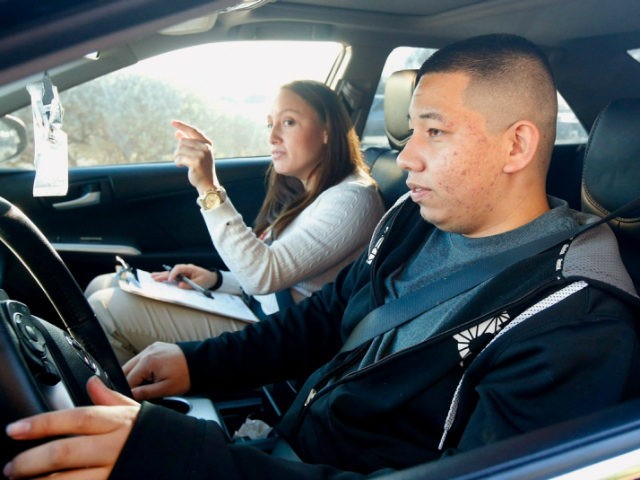WASHINGTON, DC – The Supreme Court declined to review a federal court order on Monday that bars Arizona from refusing to give driver’s licenses to illegal aliens who were granted amnesty under the Deferred Action for Childhood Arrivals (DACA) program.
Former Arizona Gov. Jan Brewer had announced that the Grand Canyon State would not issue licenses to DACA recipients, rejecting the idea that the federal government’s executive branch could grant such amnesty without Congress first passing legislation to that effect, citing a state’s sovereignty under the Tenth Amendment to make its own decisions regarding driving privileges. The Arizona Dream Act Coalition (ADAC) filed suit.
Republican-led states – with a couple Democrats thrown in to make it somewhat bipartisan – launched several challenges to President Barack Obama’s amnesty programs for illegal aliens. The first such amnesty was DACA, which Obama created in 2012.
Obama then expanded DACA with the Deferred Action for the Parents of Americans (DAPA), which a federal appeals court struck down in 2015, and which President Trump’s administration ended after Attorney General Jeff Sessions declared DAPA illegal. The U.S. Department of Homeland Security announced that its cancellation was pursuant to Sessions’ legal opinion.
Despite various political and legal disputes, DACA is still lingering on the books, at least for the moment. That kept alive ADAC’s lawsuit against the state regarding driver’s licenses.
The Constitution’s Tenth Amendment affirms that America’s 50 sovereign states have police power, which is the authority to make laws for public safety, public health, personal responsibility, and the general welfare of society. Arizona asserted that authority here, while ADAC argued that federal law preempts all state-level legal and policy determinations regarding immigration, and thus, Arizona must accept the legal status of anyone the federal government says is permitted to stay in this country.
A federal judge ruled against Arizona. The U.S. Court of Appeals for the Ninth Circuit affirmed that judgment, saying that it assumed that DACA was the equivalent of a federal law passed by Congress, and thus, DACA supersedes any state actions to the contrary. Arizona Attorney General Mark Brnovich – regarded by many as a conservative champion – petitioned the Supreme Court to take the case.
The Supreme Court denied the request, called a petition for a writ of certiorari. Four justices are required to “grant cert,” meaning that as many as three of the nine justices could have voted in favor of taking the case.
The case is Brewer v. Arizona Dream Act Coalition, No. 16-1180, at the U.S. Supreme Court.
Ken Klukowski is senior legal editor for Breitbart News. Follow him on Twitter @kenklukowski.

COMMENTS
Please let us know if you're having issues with commenting.